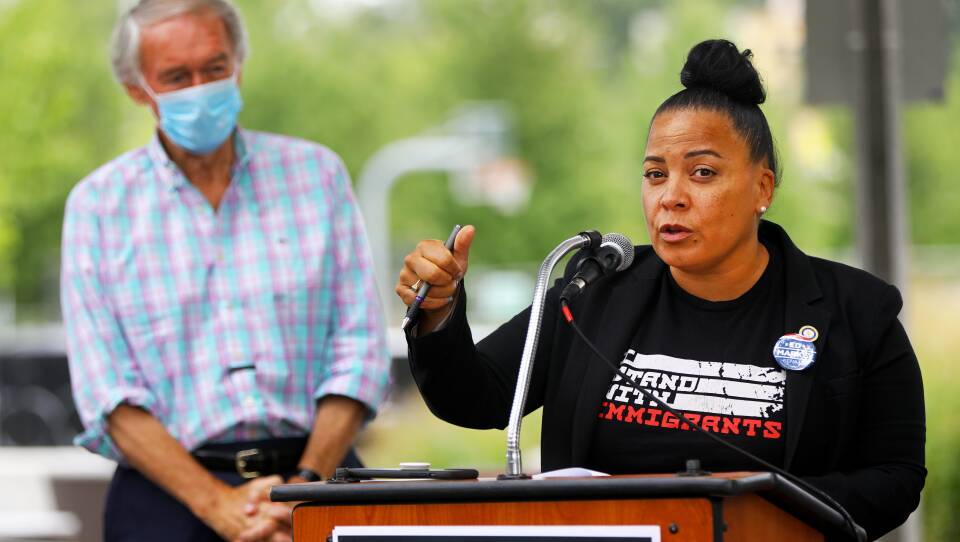Former federal judge Nancy Gertner is defending the process used to select Rachael Rollins after the U.S. Attorney for Massachusetts’ sudden resignation last week.
In a letter to the Boston Globe , she responded to an editorial that President Joe Biden and U.S. Attorney General Merrick Garland should “play it safe” when picking Rollins’ replacement — an appointment ultimately made by the president and confirmed by the Senate.
“The process wasn’t the issue,” Gertner told Boston Public Radio on Monday. “The customary way of selecting U.S. Attorneys was, ‘Who did you know?’”
Reverting to such a process to find Rollins’ replacement would make “absolutely no sense,” said Gertner.
This all comes after a pair of reports released last week revealed Rollins used her position to try to influence the election for her successor as Suffolk County district attorney.
Rollins was chosen by an advisory committee, chaired by Gertner, that recommended names to Massachusetts Sens. Ed Markey and Elizabeth Warren. It’s a practice that Gertner says Warren established when she first became senator eight years ago.
Other candidates on the committee’s shortlist included Deepika Bains Shukla, head of the Springfield U.S. Attorney’s office, and Joshua Levy, who will now step up to take over for Rollins on an interim basis. These recommendations were independently vetted by both the White House and the FBI, Gertner said.
Usual suspects for U.S. Attorneys and judges are big firm lawyers or prosecutors who are seen as safer picks because they’ve already proven themselves in their ethics and temperments, said Gertner. But in order to diversify the bench, she said the advisory committee needed to look at people who didn’t have the money to attend the legacy law schools, who chose to do social justice work instead of working for a large firm or who didn’t speak English as a first language.
“These were messier lives,” she said. “The vetting and the interviewing and the process was much more in depth because you’re not dealing with the usual suspects. And that’s a good thing.”
When asked whether she had any regrets about the final decision to recommend Rollins, Gertner said, “I have confidence in what we did at the time.”
The former judge emphasized that, when someone is in public service, like Rollins was, they should not engage in any political activity. But Gerter did not pass judgment on any of the findings in last week’s reports on Rollins. “I was shocked, let’s leave it at that,” she said.








